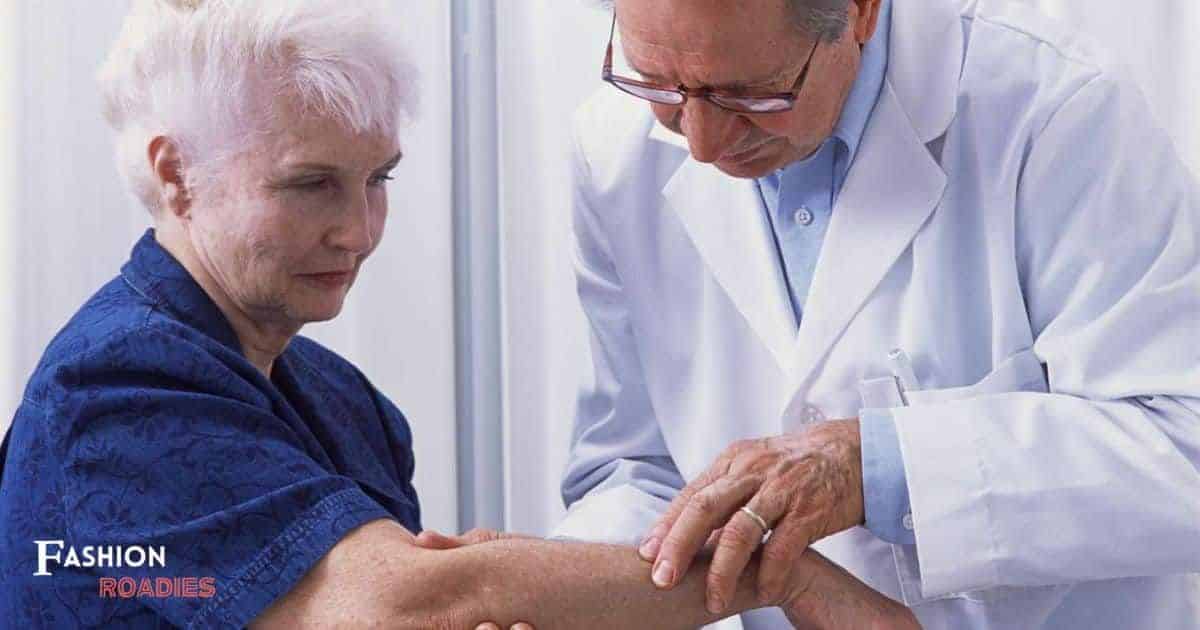Skin cancer, a sneaky and silent threat, requires prompt and precise diagnosis for effective treatment. As individuals seek immediate care, the question arises: can urgent care diagnose this potentially life-threatening condition? This article delves into the capabilities of urgent care in diagnosing skin cancer, shedding light on the factors that should be considered. By exploring the collaborative approach between urgent care and dermatology and emphasizing the importance of seeking specialist care, readers will gain a comprehensive understanding of their options in the realm of skin cancer diagnosis.
Key Takeaways
- Early detection of skin cancer is crucial for successful treatment and better cosmetic outcomes.
- Urgent care centers should invest in advanced diagnostic tools and qualified healthcare professionals with dermatology expertise.
- Collaboration between urgent care centers and dermatologists is important for accurate diagnoses and appropriate follow-up care.
- Seeking specialist care from dermatologists or skin cancer specialists is important for accurate diagnosis and individualized treatment plans.
Understanding Skin Cancer
Skin cancer is a complex and potentially life-threatening condition that requires a thorough understanding of its various types and characteristics. Early symptoms of skin cancer may include changes in the appearance of moles or the development of new growths on the skin. It is important to be aware of these signs and seek medical attention promptly. Several risk factors can increase the likelihood of developing skin cancer, including excessive exposure to ultraviolet (UV) radiation from the sun or tanning beds, a history of sunburns, fair skin, a family history of skin cancer, and a weakened immune system. Understanding these risk factors and recognizing the early symptoms of skin cancer is crucial for early detection and successful treatment. Regular skin checks and sun protection measures are essential for preventing and managing this potentially dangerous condition.
Importance of Early Detection
Early detection of skin cancer is crucial for increasing the chances of successful treatment and improving patient outcomes. Skin cancer is the most common type of cancer, and when caught early, it is highly treatable. Early intervention allows for a wider range of treatment options, including less invasive procedures with better cosmetic outcomes. It also reduces the risk of the cancer spreading to other parts of the body, which can significantly affect prognosis. Regular self-examinations and routine visits to a dermatologist are essential for detecting any suspicious changes in the skin. By being proactive and seeking medical attention at the earliest signs of skin cancer, individuals can explore various treatment options and potentially achieve better outcomes. Now, let’s evaluate urgent care’s diagnostic capabilities in diagnosing skin cancer.
Evaluating Urgent Care’s Diagnostic Capabilities
With advancements in technology and a growing emphasis on comprehensive healthcare, evaluating urgent care’s diagnostic capabilities for detecting skin cancer has become increasingly important. Urgent care centers play a vital role in providing timely medical attention, including the diagnosis of skin conditions. When it comes to evaluating efficiency, urgent care facilities offer quick access to healthcare services, allowing patients to receive a diagnosis and treatment promptly. However, the diagnostic capabilities of urgent care centers may vary depending on the expertise and resources available at each location. To ensure accurate and reliable diagnoses, it is crucial for urgent care centers to invest in advanced diagnostic tools and employ qualified healthcare professionals with expertise in dermatology. Additionally, patient satisfaction should be considered, with urgent care centers striving to provide comprehensive care, clear communication, and thorough follow-up to ensure patient confidence and trust in their diagnostic capabilities.
Factors to Consider in Urgent Care Diagnosis
When considering the diagnosis of skin cancer in an urgent care setting, there are several key factors to take into account. First and foremost, the expertise and qualifications of the healthcare providers are essential, as they need to have a thorough understanding of dermatology and skin cancer. Additionally, having access to diagnostic tools such as dermoscopy and biopsy capabilities is crucial for accurate diagnosis. Lastly, urgent care centers should have protocols in place for referral to specialists and ensuring appropriate follow-up care for patients.
Expertise and Qualifications
One important factor to consider in urgent care diagnosis of skin cancer is the level of expertise and qualifications possessed by the healthcare professionals. When it comes to diagnosing skin cancer, the accuracy of the diagnosis is crucial for effective treatment and management. Here are four key reasons why expertise and qualifications matter in urgent care diagnosis:
- Specialized knowledge: Dermatologists undergo extensive training specifically focused on skin conditions, including skin cancer. Their expertise enables them to accurately identify suspicious lesions and distinguish between benign and malignant growths.
- Experience in skin cancer diagnosis: Dermatologists have years of experience diagnosing and treating skin cancer. This experience allows them to recognize subtle signs and symptoms that may be missed by healthcare professionals without specialized training.
- Access to advanced diagnostic tools: Dermatologists have access to advanced tools and technologies that aid in the accurate diagnosis of skin cancer. This includes dermoscopy, a non-invasive technique that magnifies skin lesions for detailed examination.
- Collaboration with specialists: Dermatologists work closely with other healthcare professionals, such as pathologists and oncologists, to ensure an accurate diagnosis and comprehensive treatment plan for skin cancer patients.
Considering the expertise and qualifications of healthcare professionals is essential in urgent care diagnosis to ensure accurate identification and management of skin cancer.
Diagnostic Tools Available
The availability of diagnostic tools and the consideration of various factors are crucial in urgent care diagnosis of skin cancer. Urgent care centers may have limited resources compared to specialized dermatology clinics, but they still have access to certain tools that aid in the accurate diagnosis of skin cancer. These tools may include dermoscopes, which allow healthcare providers to examine the skin in detail and identify any suspicious lesions or moles. Additionally, urgent care centers may have the capability to perform skin biopsies, which are essential in confirming a diagnosis of skin cancer. It is important for urgent care providers to be knowledgeable about the appropriate use of these tools and to consider other factors, such as the patient’s medical history and risk factors, in order to make an accurate diagnosis. Transitioning to the next section on ‘referral and follow-up’, these diagnostic tools help urgent care centers determine whether a referral to a specialist is necessary for further evaluation and treatment.
Referral and Follow-Up
Appropriate referral and timely follow-up are crucial factors to consider in the urgent care diagnosis of skin cancer. When it comes to skin cancer, early detection and prompt treatment can significantly improve outcomes. Here are four important aspects of the referral process and follow-up care that patients should be aware of:
- Referral to a specialist: Urgent care facilities may not have the necessary resources or expertise to provide a definitive diagnosis of skin cancer. In such cases, patients should be referred to a dermatologist or oncologist for further evaluation.
- Timely follow-up appointments: After the initial visit, it is essential for patients to schedule and attend follow-up appointments as recommended by the specialist. These appointments allow for close monitoring of the condition and any necessary interventions.
- Collaboration between healthcare providers: Effective communication and collaboration between urgent care providers and specialists are crucial to ensure seamless and coordinated care for patients.
- Patient education and empowerment: Patients should be educated about the importance of follow-up care, including self-examination and reporting any changes or concerns to their healthcare providers.
Collaborative Approach: Urgent Care and Dermatology
Urgent care centers and dermatology practices can benefit from a collaborative approach in diagnosing and treating skin cancer. By working together, these two healthcare providers can ensure that patients receive timely and accurate diagnoses, as well as appropriate treatment plans.
In a collaborative approach, urgent care centers can play a crucial role in identifying potential skin cancer cases and referring them to dermatologists for further evaluation. Urgent care providers can perform initial assessments, order diagnostic tests, and provide immediate treatment when necessary. They can also educate patients about the importance of regular skin examinations and sun protection measures.
Dermatologists, on the other hand, bring their specialized expertise in diagnosing and treating skin cancer. They can perform thorough examinations, conduct biopsies, and develop individualized treatment plans, including surgical interventions or targeted therapies. Dermatologists can also provide long-term monitoring and follow-up care for patients with a history of skin cancer.
Through a collaborative approach, urgent care centers and dermatology practices can work together to ensure optimal patient outcomes and enhance the overall quality of skin cancer care.
Making Informed Decisions: Seeking Specialist Care
When faced with potential skin cancer symptoms, patients should carefully consider seeking a qualified specialist for an accurate diagnosis and appropriate treatment. While urgent care centers can provide initial evaluations, they may not have the expertise or resources for a comprehensive skin cancer diagnosis. Seeking alternatives such as consulting a dermatologist or a skin cancer specialist can provide patients with a higher level of expertise and access to specialized diagnostic tools. Additionally, obtaining a second opinion from another specialist can offer reassurance and peace of mind. Skin cancer is a serious condition that requires prompt and accurate diagnosis to ensure the most effective treatment. By seeking specialist care, patients can make informed decisions about their health and receive the best possible care for their specific condition.
Frequently Asked Questions
What Are the Different Types of Skin Cancer?
Skin cancer is a broad term that encompasses different types such as basal cell carcinoma, squamous cell carcinoma, and melanoma. Understanding the differences between these types is crucial for early detection and prevention.
What Are the Risk Factors for Developing Skin Cancer?
Genetic predisposition and sun exposure are two key risk factors for developing skin cancer. Understanding these factors can help individuals make informed decisions about sun protection and seek medical advice when necessary.
How Is Skin Cancer Usually Diagnosed?
Skin cancer is typically diagnosed through a skin biopsy, in which a small sample of skin is removed and examined under a microscope. This procedure allows for accurate identification and classification of skin cancer.
What Are the Treatment Options for Skin Cancer?
Skin cancer treatment options include surgery and radiation therapy. Preventive measures such as sun protection and regular skin check-ups are essential. Consulting with a qualified dermatologist is recommended for accurate diagnosis and personalized treatment plans.
Are There Any Preventive Measures That Can Be Taken to Reduce the Risk of Skin Cancer?
Preventive measures play a crucial role in reducing the risk of skin cancer. One of the most effective measures is sun protection, which includes wearing sunscreen, protective clothing, and seeking shade during peak sun hours.
Conclusion
In conclusion, while urgent care centers can provide initial assessments and referrals for potential skin cancer cases, it is essential to seek specialized care from dermatologists for accurate diagnosis and treatment. Early detection is crucial in improving the prognosis and outcomes of skin cancer patients. According to the American Academy of Dermatology, skin cancer is the most common type of cancer in the United States, with over 9,500 people being diagnosed every day. Therefore, it is imperative to prioritize timely and expert care for skin cancer concerns.










